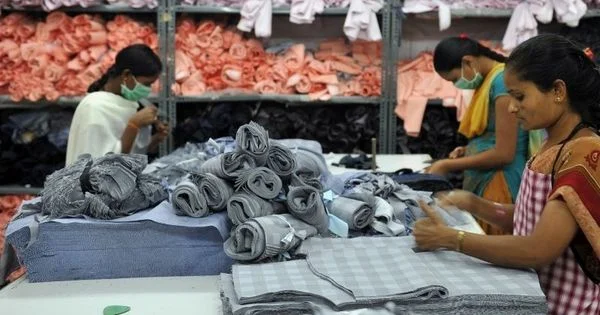On June 30, 2025, Congress General Secretary for Communications Jairam Ramesh unveiled on X what may well become a watershed in India’s tangled relationship with the gig economy: the draft of the Telangana Gig and Platform Workers (Registration, Social Security and Welfare) Bill, 2025. This draft comes five years after India’s Social Security Code, 2020, the first piece of national legislation to formally recognise gig and platform workers, albeit without spelling out concrete entitlements. Telangana’s bill now seeks to take that skeletal promise and flesh it out into a living framework of rights, protections, and welfare guarantees.
The bill comes just weeks after the Leader of the Opposition in Lok Sabha, Rahul Gandhi, remarked in Parliament that gig workers, toiling without social protections, live under conditions akin to “modern day slavery“. It also follows Rajasthan’s pioneering move in 2023, when the Ashok Gehlot government became the first in the country to etch social safeguards for gig workers into law, setting a precedent that other states are now reckoning with.

But the bill’s origins trace back to the determined organising of Shaik Salauddin, a 39-year-old cab driver from Hyderabad who turned his everyday struggles behind the wheel of an app-based taxi into a formidable labour movement. Witnessing firsthand how opaque algorithms, sudden suspensions, and erratic pay left gig workers exposed and voiceless, Shaik channelled these daily indignities into collective action. In 2019, he founded the Telangana Gig and Platform Workers Union (TGPWU) — one of India’s first unions dedicated solely to app-based workers. Under his leadership, the union spearheaded strikes, met with labour officials, and exposed how delivery partners routinely faced accidents, mounting medical bills, and arbitrary deactivations without any safety net.
At the heart of Telangana’s draft bill lies an ambitious blueprint to pull gig and platform workers long relegated to the algorithm’s blind spots into a formal web of protections.
By November 2024, Telangana’s government began shaping a policy response, floating proposals for a 1% welfare cess on aggregators, accident insurance, and algorithmic transparency. Early 2025 saw the announcement of Mana Yatri, a state-backed app to help gig workers self-register, signalling that formal recognition and data mapping were close at hand. The momentum surged in April this year when Chief Minister A. Revanth Reddy and Labour Minister Vivek Venkatswamy publicly committed to bringing in landmark legislation.
What Telangana’s bill promises: registries, welfare fees, and worker security
At the heart of Telangana’s draft bill lies an ambitious blueprint to pull gig and platform workers long relegated to the algorithm’s blind spots into a formal web of protections. The bill mandates the registration of all gig and platform workers, assigning them unique IDs and building a state-wide database to ensure they are visible under the law. It establishes a dedicated Welfare Board, charged with overseeing their benefits, resolving disputes, and guiding policy. Funding this new safety net is a proposed 1–2% welfare fee on each transaction, to be collected from aggregators. Platforms, under this draft, would also be bound by clearer rules on payouts and termination: any plan to deactivate a worker’s account must come with written notice and justification at least seven days in advance, unless there’s a serious safety concern. The bill further nudges open the black box of algorithmic management, calling for greater transparency on how work is assigned and pay is calculated.
/established/media/post_attachments/theestablished/2025-01-16/orjys0nq/side_view_of_young_tired_female_worker_of_factory_2023_11_27_05_28_27_utc.jpg)
Based in Hyderabad, the board will be headed by the state’s labour minister, a representative of the Union labour ministry, top-ranking state officials, four representatives each from gig workers and aggregators and two civil society members. While the bill aspires to balance interests, advocates have pointed out that its promise may falter without sharper guarantees.
Over recent months, the Telangana Gig and Platform Workers Union (TGPWU), Indian Federation of App-based Transport Workers (IFAT), Vidhi Centre for Legal Policy, along with lawyers and trade unions, have poured over the draft, flagging crucial gaps that could hobble effective implementation.
The fault lines in the draft
These stakeholders have expressed concerns regarding the lack of uniform fare regulations, unchecked surge pricing, and gaps in enforcement that continue to hurt both customers and drivers across India.
The Act should clearly specify that it will come into force within 90 days of being notified, to avoid bureaucratic delays that could stall the rollout of welfare measures and enforcement mechanisms. It must also ensure that individual provisions aren’t selectively implemented in ways that undermine or delay the broader objectives of the legislation. There is a need to redefine and re-envision the term ‘gig worker’. Traditionally, the term ‘gig worker’ has been used to define anyone who undertakes short-term work or is a freelancer without a full-time commitment to any particular entity. Therefore, any worker who brings value to the aggregator must be brought within the scope of this Act. Since the word ‘platform’ is also defined, it must include platform workers as well.
There is also a need to prescribe sector-specific minimum remuneration rates under the law, taking into account the work-related costs borne by gig and platform workers across different industries.

For instance, passengers often suffer from exorbitant ride costs during emergencies, festivals, rains, or peak hours. Drivers, on the other hand, struggle because even though fares go up, aggregators retain a large share, leaving drivers to face backlash from customers. As Shaik Salladudin emphasizes, ‘When fares increase by two or three times, passengers blame drivers, but the truth is both drivers and passengers are suffering while only the app companies profit. We need fixed, fair fares across India, strong state enforcement, and an end to illegal operations like bike taxis without yellow plates. Only then can we ensure safety, dignity, and fairness for both customers and workers.’
IFAT & TGPWU demands that the Government of India must introduce a uniform, transparent fare structure across states to protect passengers and ensure predictable, fair earnings for drivers.
The Bill currently allows for four representatives from gig and platform workers. However, it must include representation from worker unions and associations such as IFAT and TGPWU. The Bill should ensure that these guidelines are implemented with active participation from worker unions, making them an integral part of any monitoring and enforcement processes to truly protect workers’ rights.
‘When fares increase by two or three times, passengers blame drivers, but the truth is both drivers and passengers are suffering while only the app companies profit. We need fixed, fair fares across India, strong state enforcement, and an end to illegal operations like bike taxis without yellow plates. Only then can we ensure safety, dignity, and fairness for both customers and workers.’
Transparency looms as another gaping hole. The burden of disclosing information about automated monitoring and decision-making systems must rest on the aggregator, rather than requiring workers to approach the aggregator each time they need information or transparency. The lack of clarity around how algorithmic management systems function in platform work has already been identified by the ILO as a significant gap in the protection of workers’ rights, as noted in its background paper on the proposed instrument for decent work in the platform economy.
Research has shown that because these systems are often opaque and ultimately controlled by human managers, they can be used to increase managerial power and enable arbitrary decisions about workers, without consultation or dialogue. Without a minimum level of transparency, it can even be impossible to determine whether a decision was made by an algorithm or by a human supervisor.
Therefore, aggregators must proactively communicate key information, including – the main parameters used to allocate work, how work performance is assessed, how remuneration is determined, the grounds for denial of work, the criteria for deactivation, termination, or off-boarding from the platform, and how the ratings system operates.
There is also an urgent plea to clarify what exactly constitutes a safe, risk-free working environment that must be provided by the aggregator. For instance, this includes ensuring that gig and platform workers have adequate periods of rest during the workday, access to sanitary and rest facilities, support in cases of violence, and compensation in the event of loss of life or disability arising in the course of their work.
Additionally, female gig workers currently lack effective avenues for redress if they experience sexual harassment at the workplace, due to gaps and ambiguities under the POSH Act. This Bill must explicitly extend protections under POSH to gig and platform workers to ensure their right to a safe working environment.
There is a need to ensure that the amounts collected from aggregators as welfare fees are primarily used for the welfare and benefits of gig and platform workers, with only a minimal portion allocated toward administrative expenses.
A patchwork of protections across states
When set side by side, the gig and platform worker laws emerging from Rajasthan, Karnataka, and Telangana reveal a patchwork of ambitions and gaps. Rajasthan, the pioneer, enacted its landmark law in 2023, establishing a welfare board and mandating aggregator contributions, but critics note its sluggish implementation and the lack of robust mechanisms to enforce timely benefits. Karnataka, opting for an ordinance in 2024, advanced provisions on data transparency and created a dedicated welfare fund, yet stopped short of specifying sector-wise minimum pay rates. Telangana’s draft bill goes further on registration, proposing a comprehensive worker database and unique IDs and outlines a welfare fee of 1–2% on each transaction, but still needs sharper guarantees on algorithmic transparency and safeguards against arbitrary deactivation. Unlike Rajasthan and Karnataka, Telangana’s bill also hints at regulating the nuts and bolts of platform operations, such as requiring notice before offboarding. Taken together, these legislative efforts show Indian states experimenting with different levers from welfare boards to data rights and financial contributions, each capturing only part of the broader puzzle of how to secure dignity, fair pay, and safety in the volatile world of gig work.
As India’s gig economy continues its rapid expansion, these questions demand urgent and honest reckoning. Otherwise, what begins as a legislative promise to protect millions of precarious workers could well devolve into a patchy regime of partial safeguards — offering neither true security for gig workers nor clarity for platforms.
Shaik Salauddin points out that separate state bills with differing requirements for gig worker welfare boards in Rajasthan, Karnataka, and Telangana could create significant compliance challenges for platforms operating across states. Companies may have to juggle varied rules on board composition, registration processes, contribution rates, and the types of benefits offered, leading to administrative complexity and legal uncertainty. This, he explains, will directly impact gig workers: platforms might pass on higher compliance costs to workers through reduced payouts or higher commissions, delay the rollout of benefits while navigating state-specific obligations, or even restructure operations to avoid stricter states — all of which could mean fewer earnings, less job security, and inconsistent access to social protections for gig workers across India.
The road ahead: challenges for gig workers’ rights
These state laws still leave open several fundamental questions. Who will ensure that the welfare fees collected from aggregators genuinely reach workers rather than getting absorbed by bureaucratic costs? How will algorithmic opacity, the core source of so many disputes over wages, ratings, and arbitrary deactivations be decisively tackled? Will sector-specific minimum pay rates ever be mandated to fairly account for the unique risks faced by delivery riders, cab drivers, and other platform workers? And without a unified national framework that complements these state laws, will platforms simply exploit regulatory arbitrage — shifting operations to states with weaker protections, thereby eroding the very rights these bills aim to secure?
As India’s gig economy continues its rapid expansion, these questions demand urgent and honest reckoning. Otherwise, what begins as a legislative promise to protect millions of precarious workers could well devolve into a patchy regime of partial safeguards — offering neither true security for gig workers nor clarity for platforms. In the end, the challenge is not merely to get gig workers a seat at the table, but to ensure that their table rests on a sturdy, equitable foundation. Only then can India claim it has truly reshaped the future of work for its most vulnerable labour force.
About the author(s)
Vanita is a lawyer by training and writes stories at the intersection of business & public policy, law, regulations and building inclusive workplaces. She is a Staff Writer for The Ken.



